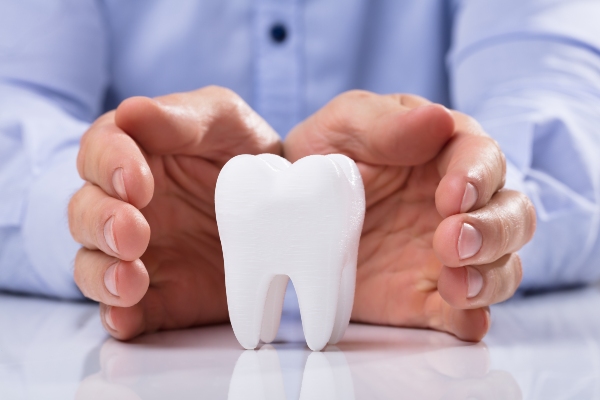 Routine dental care is vital for anyone striving to achieve optimum health. Dentists recommend two preventative dental visits per year, but much can happen between visits; therefore, it is crucial to get the most out of each appointment.
Routine dental care is vital for anyone striving to achieve optimum health. Dentists recommend two preventative dental visits per year, but much can happen between visits; therefore, it is crucial to get the most out of each appointment.
How to prepare for a dental visit
Professional cleanings are an essential component of routine dental care and can remove plaque and tartar below the gum line where a toothbrush and floss cannot reach. In-office cleanings are vital for healthy teeth and gums, but patients can also contribute to successful dental appointments by doing the following.
Bringing a list of oral health concerns
Although it is advisable to visit a dentist as soon as issues arise, a routine appointment is a time to raise concerns about various topics, including:
- Bleeding or swollen gums
- Mouth sores
- Sensitive teeth
- Bad breath
- Dry mouth
Some problems may be noticeable during cleanings or exams, whereas others requiring further investigation may not be apparent without patients' disclosures.
Discussing general health changes
Overall health and oral health often intertwine, and many illnesses lead to oral complications or may eliminate some procedure options. When patients disclose general health issues, dentists can recommend treatment or maintenance plans. For example, individuals with diseases that reduce saliva production have a predisposition for cavities and may benefit from fluoride treatments. Some cardiac patients require antibiotics before undergoing routine dental care to prevent infections.
Reviewing current medications
Patients should inform dentists about medication changes. Many drugs have oral side effects that dentists can counter using various strategies, including advising patients to increase cleaning frequency, prescribing artificial saliva, or recommending specific oral cleaning products.
Reviewing home maintenance
Brushing and flossing every day is essential for maintaining a healthy mouth, but guidelines periodically change as dentistry evolves. Patients should ask dentists or hygienists to review home cleaning techniques and offer advice and suggestions for achieving maximum benefits.
Alerting the dentist about anxiety
Patients who communicate feelings of uneasiness can ensure productive dental appointments by giving dentists opportunities to provide positive experiences. Dentists can administer treatments to promote relaxation, offer topical ointments to eliminate pain, and communicate details about what to expect throughout a visit.
Bringing insurance details
Patients can minimize out-of-pocket costs by remembering to use dental insurance benefits. Many insurance providers cover up to two routine dental visits per year, including cleanings and other preventative care. People with dental insurance can get the most out of a dental appointment by confirming insurance coverage before scheduling. Patients who raise financial concerns may be able to negotiate payment plans to obtain care unavailable otherwise.
Why routine dental care is important
The cleanings and exams available at a dentist's office and a rigorous home maintenance plan can prevent many dental problems. Dentists who see patients every six months can discover potential issues to avoid serious complications. Patients can get the most out of routine dental visits by adhering to this schedule and not allowing care to lag.
Conclusion
Preventative dental care is a necessary part of maintaining good general health. Minimal preparation before visiting a dentist can ensure that patients get the most out of every routine dental care appointment.
Request an appointment or call Johns Creek Dentistry at 770-623-1427 for an appointment in our Johns Creek office.
Recent Posts
A crucial component of being healthy is routine dental care. When oral health is ignored, harmful bacteria can compromise the rest of the body. Healthy dental practices involve a two-prong approach of visiting the dentist regularly and continuing oral health care at home. Discover more about what is considered routine and effective dental care practices.Making…
Most people understand the importance of regular medical screenings to prevent various illnesses, but many do not realize the relationship between oral health and general health. Routine dental care is an essential preventative measure necessary to ensure good health.Gingivitis and periodontal disease can cause infections that lead to tooth loss, jawbone loss, bite changes, and…
Prioritizing routine dental care is necessary for good health. Unfortunately, some people can find it difficult to care properly for their teeth by brushing, flossing, and seeing a dentist on a regular basis. Patients who disregard dental hygiene and professional care need immediate action to prevent dangerous outcomes.In addition to an unsightly smile, failing to…


